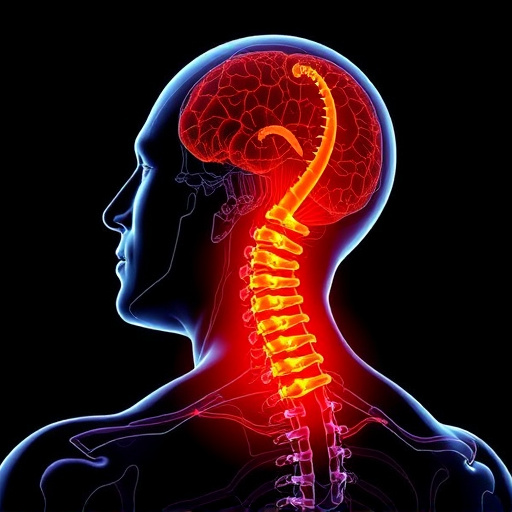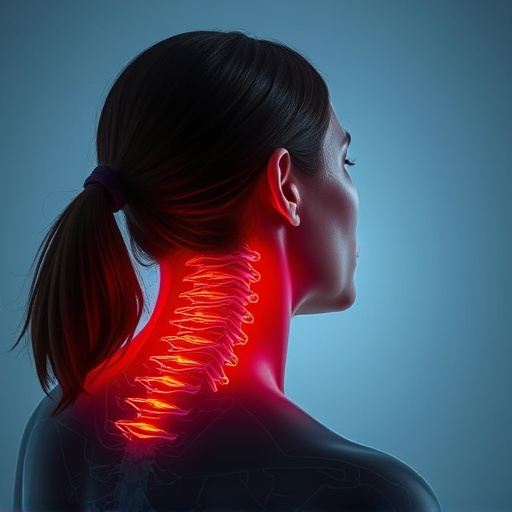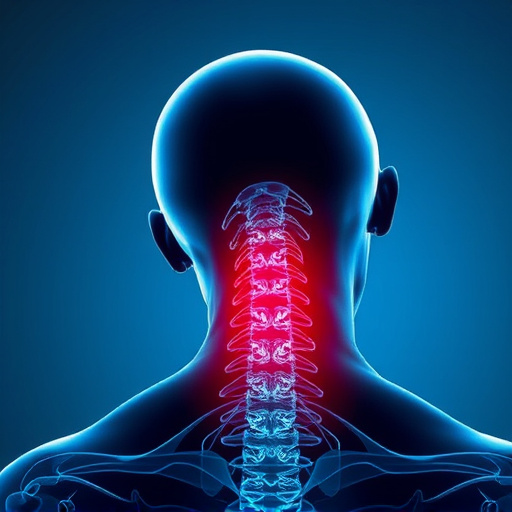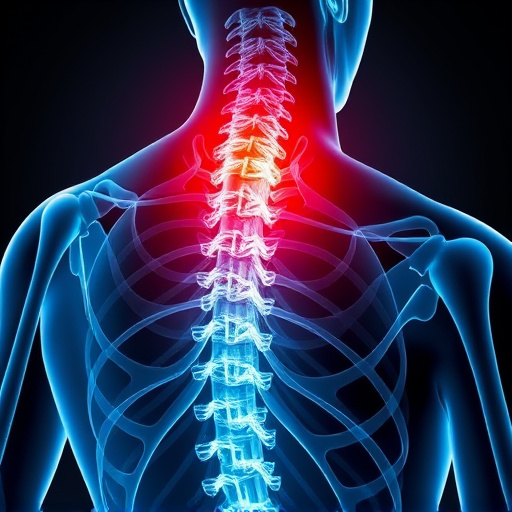Chronic pain, lasting beyond typical healing periods, severely affects quality of life and well-being, stemming from physical injuries, conditions like arthritis or fibromyalgia, and medical treatments. Integrative care models combining conventional medicine with complementary therapies offer personalized care plans including medication, physical therapy, mindfulness, alternative treatments like acupuncture, and support groups. This holistic approach significantly improves outcomes for conditions such as sciatica, auto accident recovery, and persistent sports injuries. Growing demand for holistic solutions has led to a trend towards integrative care models, acknowledging the complexity of chronic pain from physical, mental, and social factors. Effective strategies require collaboration between healthcare teams, including chiropractic, acupuncture, and psychological support, to address both symptoms and underlying causes, enhancing relief and quality of life.
Chronic pain is a prevalent and complex health challenge, affecting millions worldwide. In response, integrative care models have emerged as innovative approaches to enhance traditional treatments. This article explores the growing significance of these models in managing chronic pain, offering a holistic perspective on patient care. We delve into understanding the condition’s impact, uncovering the benefits of integrative strategies, and providing practical insights for implementation, all geared towards improving chronic pain management outcomes.
- Understanding Chronic Pain and Its Impact
- The Rise of Integrative Care Models
- Implementing Effective Integrative Care Strategies
Understanding Chronic Pain and Its Impact

Chronic pain is a complex condition that significantly impacts an individual’s quality of life and overall well-being. It is defined as pain that persists beyond the typical healing period for a particular injury or illness, often lasting for months or even years. This persistent pain can stem from various sources, including physical injuries like sports injuries or auto accident recoveries, conditions such as arthritis, fibromyalgia, or nerve damage, and even certain medical treatments. The impact of chronic pain is profound; it can disrupt sleep patterns, limit mobility, affect mood and mental health, and impair a person’s ability to engage in daily activities and work.
Managing chronic pain effectively is crucial for restoring function and enhancing patients’ overall sense of well-being. Integrative care models, which combine conventional medical treatments with complementary therapies, have emerged as a promising approach. These models focus on personalized care plans that address the physical, emotional, and psychological aspects of chronic pain, often including medication management, physical therapy, mindfulness practices, alternative treatments like acupuncture or massage, and support groups. By adopting an integrative approach, healthcare providers can offer comprehensive care tailored to each patient’s unique needs, ultimately improving outcomes for those struggling with conditions such as sciatica relief, auto accident recovery, or managing persistent pain from sports injuries.
The Rise of Integrative Care Models

In recent years, there’s been a noticeable shift towards Integrative Care Models for chronic pain management, driven by the growing demand for effective, holistic solutions. These models recognize that chronic pain is complex, often involving a combination of physical, mental, and social factors. As such, they move beyond traditional, pill-based treatments to include a diverse array of therapeutic approaches tailored to each individual’s unique needs.
Integrative care leverages evidence-based practices like personalized treatment plans, incorporating modalities such as shockwave therapy for sciatica relief alongside conventional methods. This comprehensive approach not only targets pain symptoms but also aims to improve overall quality of life by addressing underlying causes and fostering resilience. The benefits are significant, leading many healthcare providers to adopt these models as a more compassionate and effective way to manage chronic pain.
Implementing Effective Integrative Care Strategies

Implementing effective integrative care strategies for chronic pain management requires a multifaceted approach that combines conventional medical treatments with alternative therapies. By integrating practices like chiropractic treatment, acupuncture, and mind-body techniques, healthcare providers can offer comprehensive solutions tailored to individual patient needs. This holistic strategy not only addresses physical symptoms but also focuses on mental well-being, promoting chronic pain relief and improved quality of life.
Chronic pain management becomes more effective when healthcare teams collaborate seamlessly, fostering an environment where chiropractic care, physical therapy, and psychological support work in harmony. This coordinated effort ensures that patients receive joint pain relief through a range of evidence-based interventions, ultimately enhancing their ability to manage and overcome chronic pain conditions.
Integrative care models have emerged as a game-changer in managing chronic pain, offering holistic approaches that go beyond traditional medical treatments. By combining conventional medicine with evidence-based complementary therapies, these models enhance patient outcomes and improve quality of life. As the demand for effective chronic pain management continues to grow, adopting integrative strategies becomes essential. Healthcare providers should consider tailoring these models to meet individual needs, ensuring accessible and comprehensive care for patients navigating the challenges of chronic pain.














